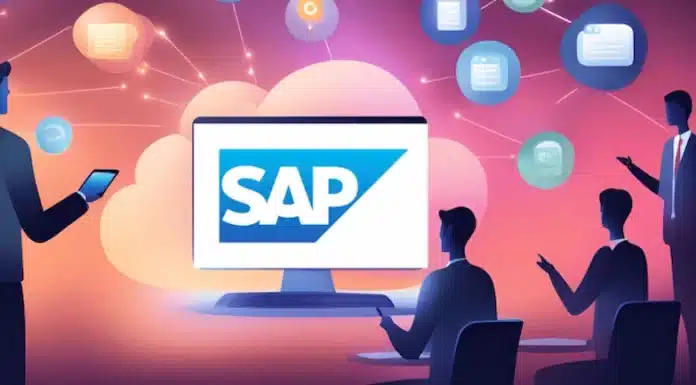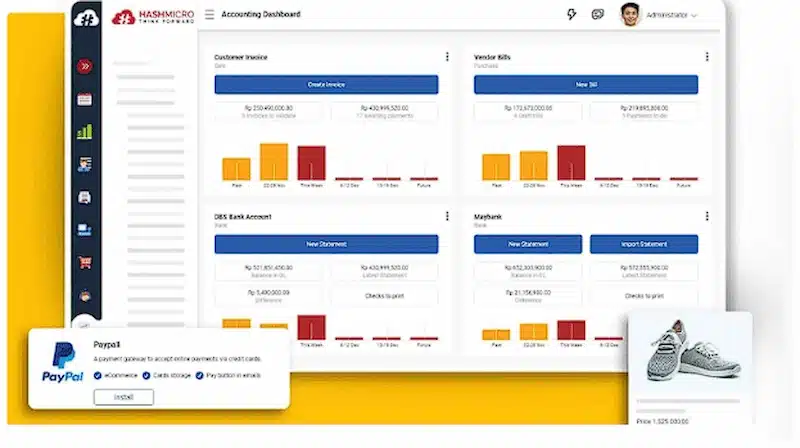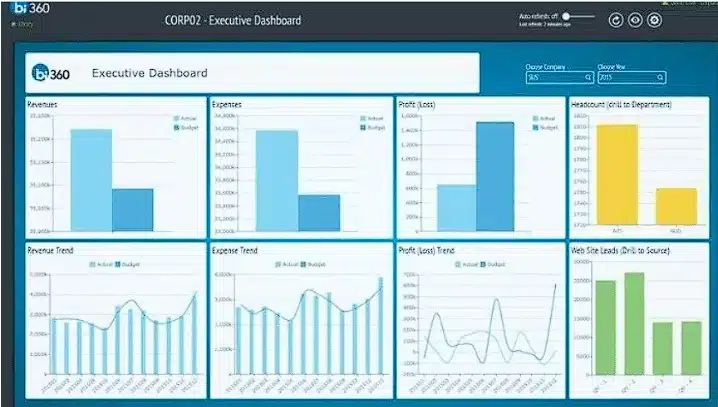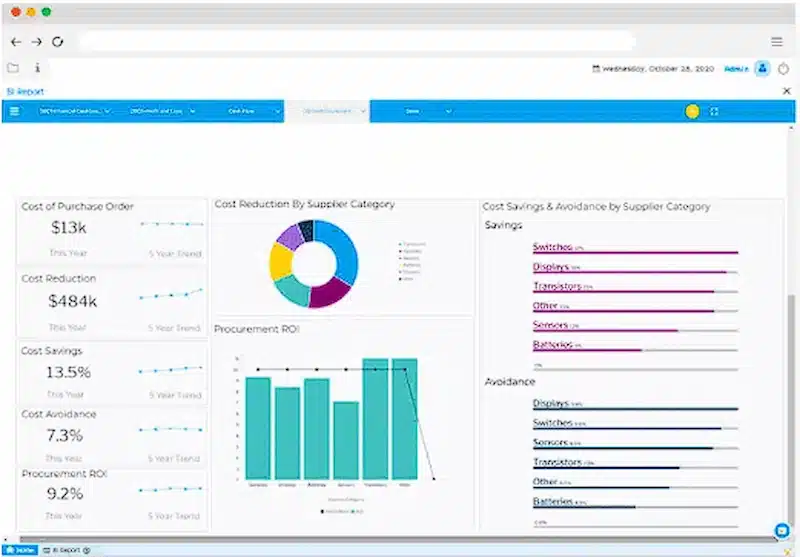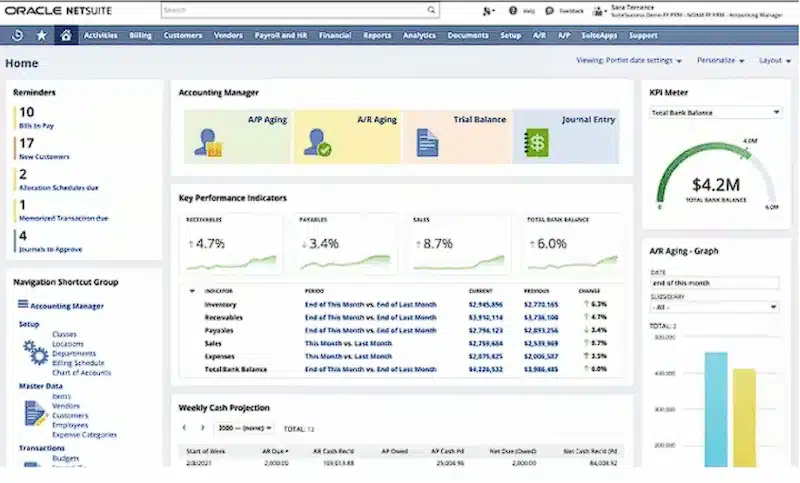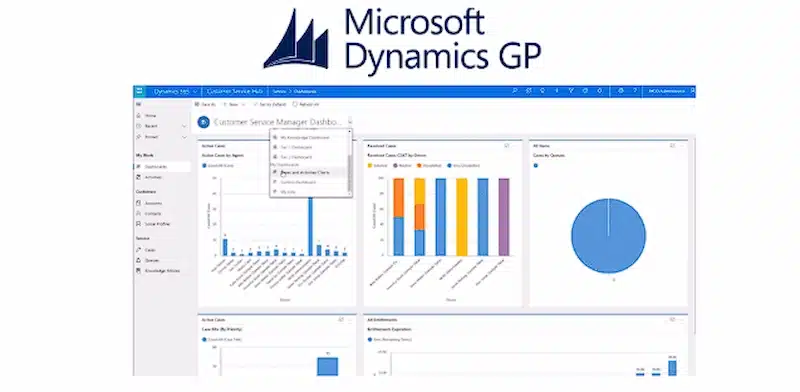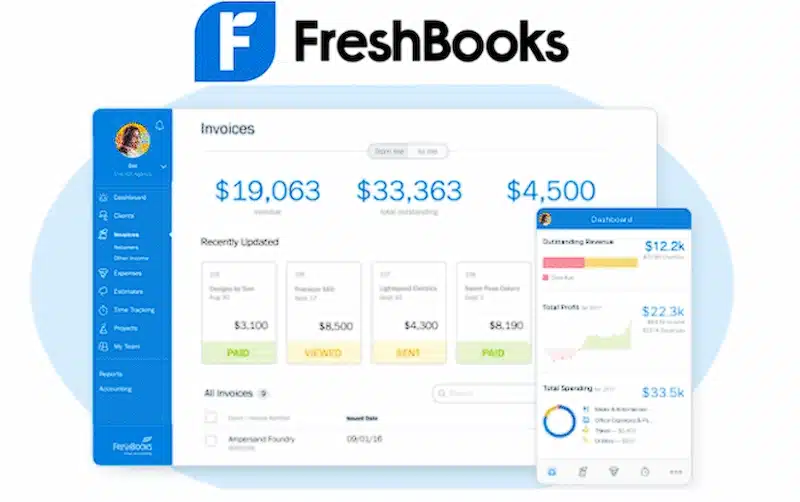Accounting workloads are rising due to globalization, complex regulations, and the need for real-time reports. That’s why having an accounting system is crucial. It streamlines how you collect, manage, and report financial data.
The Journal of Accountancy states that 79% of businesses experience increased productivity through accounting systems, thanks to integrating accounting elements on a single platform.
Due to its efficiency, many vendors offer accounting systems, including SAP, a trusted provider since 1972. But is SAP in accounting as good as it seems? What are its pros and cons?
In this article, we will present an in-depth review that discusses the advantages and disadvantages, as well as provides alternatives to the system you are using. Handa ka na bang mag-explore pa? Tara na!
Key Takeaways
|
Table of Contents

What is SAP Accounting System?
SAP System Accounting is one of the financial software programs that helps companies manage and process financial transactions. It helps simplify an organization’s accounting processes, including managing ledgers, balance sheets, and profit and loss statements.
SAP provides software that facilitates organized and automated data management across all areas of an organization. This functionality is particularly beneficial for businesses operating in multiple countries and dealing with various currencies daily.
SAP Accounting Features
SAP Accounting consists of several key components that work together to provide comprehensive financial management features for better and more effective accounting tasks. These components include:
- General Ledger: Core of the SAP accounting system; manages financial transactions, tracks balances, and generates financial statements. Supports creation and management of accounts (assets, liabilities, equity, etc.).
- Accounts Payable & Receivable:
- Accounts Payable: Manages vendor invoices, payments, payment terms, and vendor data.
- Accounts Receivable: Oversees customer invoices, balances, collections, and customer data.
- Bank Accounting: Links bank transactions with accounting. Manages bank data, reconciles statements, processes electronic transfers, and supports cash management.
- Asset Accounting: Manages fixed assets throughout their lifecycle (acquisition, depreciation, retirement). Provides asset tracking and reporting.
- Funds Management: Focuses on budgeting, fund allocation, and expenditure monitoring. Tracks spending against allocated budgets with reporting tools.
- Legal Content Management: Streamlines legal document management and compliance, offering features like version control, document collaboration, and workflow management.
SAP Finance Pros and Cons
Now that we’ve outlined the core components of SAP Accounting, let’s explore its strengths and limitations. Understanding these pros and cons can help businesses decide if SAP Accounting is the right fit for their financial management needs. Here’s a closer look:
1. Pros of SAP Accounting Software
One of the main advantages of the SAP Accounting System is its ability to save time in managing financial reports. The automation process provided by this system can speed up the preparation of reports and minimize delays in the accounting process.
Not only that, this accounting software benefit makes it easy for users to analyze financial data. The system is equipped with analytic tools, enabling companies to gain deep insights into their financial conditions that allow them to make more informed business decisions based on financial information.
2. Cons of SAP Accounting Software
However, behind its various advantages, the SAP Accounting System also has several disadvantages. The integration process is not always seamless, especially when it comes to synchronizing with other systems that already exist in the company.
In addition, SAP license prices tend to be higher, making it less affordable for smaller companies. SAP implementation can also be challenging as it requires considerable time and resources, as well as requiring specialized training to ensure the entire team can use the system effectively.
7 SAP Accounting System Alternatives for Businesses in the Philippines
Accounting systems do offer advantages that can improve the efficiency of financial management. However, it still has drawbacks that can hold you back. Samakatuwid, mahalagang isaalang-alang mo ang mga alternatibong sistema mula sa SAP.
Here we present 7 SAP alternative systems that you can consider using:
1. HashMicro Accounting System
Why we recommend it: HashMicro offers easy financial reporting, automated bookkeeping, and smooth tax compliance. It’s also BIR CAS compliant, making tax filing straightforward for any business.
The first choice of SAP accounting software alternative that you can consider is the accounting system from HashMicro. HashMicro’s accounting software is designed with a user-friendly interface that makes the implementation process less time-consuming and does not require someone with a specific background.
In addition, it has scalability and extensive customization options. As a result, the system can continue to be optimized to keep up with all business developments and follow the specific needs of each financial management need required by the company.
Here are the features offered by the HashMicro accounting system that make it worth your consideration:
- Bank Integration – Auto Reconciliation: Integrated with bank reconciliation software automatically matching process between transaction data recorded in the bank and internal bookkeeping in the system.
- Multi Level Analytical: Know the trend or insight of all financial transactions in real-time and can be filtered based on various categories.
- Profit & Loss vs Budget & Forecast: Provides a report that can provide information related to the deviation between the estimated profit and loss based on the budget value that has been set and the actual profit and loss value.
- Budget S Curve: Visually track and understand the distribution of expenses in the project, enabling faster and more informed decision-making regarding budget management.
- Financial Statement with Budget Comparison: Provides a clear picture of how the company’s actual financial performance matches the plan to identify deviations and make necessary adjustments to achieve financial goals.
| Pros | Cons |
| Can be integrated with other systems easily | Less suitable for medium to low-scale businesses |
| Responsive customer service
No limit on the number of users |
|
| Wide scalability | |
| No additional costs in the middle of implementation |
2. Sage X3
Why we recommend it: Sage X3 offers comprehensive financial management with features like advanced reporting, automated bookkeeping, and flexible budgeting. It’s designed for scalability, making it ideal for businesses of various sizes looking for a streamlined accounting solution.
Sage X3 can be your SAP alternative. This system can help you generate real-time reports that will play an important role in making strategic business decisions in the future. In addition, this system also has high scalability, which will enable Sage to keep up with all business developments in the future.
Narito ang mga tampok ng Sage X3 na ginagawang sulit ang system na ito sa iyong pagsasaalang-alang:
- Fixed Assets Management
- Budgeting and Forecasting
- Multi-Currency Support
| Pros | Cons |
| High scalability | Limited customization |
| Facilitate multi-currency management | Less intuitive interface |
| Operational efficiency | Less responsive customer service |
3. Epicor Accounting System
Why we recommend it: Epicor provides robust financial tools, including real-time data tracking and automated accounting processes. Its flexibility and detailed reporting make it a strong option for businesses that need a customizable accounting system.
Epicor Accounting System is part of an ERP solution designed to comprehensively manage a company’s accounting and financial needs. The software is used to help companies track and manage financial transactions, optimize budgets, and simplify the financial reporting process.
One of the key advantages of Epicor is its comprehensive ERP functionality. It not only offers accounting solutions but also integrates with other modules such as inventory management, production, and human resources. This allows companies to have one unified platform that makes coordination between departments easier.
Narito ang mga tampok ng Epicor na ginagawang sulit ang system na ito sa iyong pagsasaalang-alang:
- Governance, Risk and Compliance
- Financial Analysis
- Accounts Receivable
- Fixed Assets
| Pros | Cons |
| Responsive customer service | Incomplete modules |
| No additional costs in the middle of the implementation process | Difficult to customize |
4. Oracle Netsuite Accounting Software
Why we recommend it: Oracle’s accounting software is known for its powerful financial analysis, automated processes, and compliance capabilities. It’s a reliable choice for businesses needing in-depth financial management and streamlined operations.
Oracle’s online accounting program offers an integrated solution for managing company finances. This accounting software is built to operate in a cloud environment, utilizing advanced cloud technologies to improve accessibility, scalability and security.
Here are some of the features that this accounting application offers:
- General ledger
- Expense management
- Risk management
| Pros | Cons |
| In-depth features | Dependence on IT infrastructure |
| High flexibility | High maintenance costs |
5. Microsoft Dynamics
Why we recommend it: Microsoft Dynamics offers a user-friendly platform with extensive accounting features, including financial reporting, expense tracking, and integration with other Microsoft tools. Its flexibility and scalability make it suitable for businesses of all sizes.
Microsoft Dynamics offers a wide range of accounting solutions designed for companies of all sizes and needs. As a complete and integrated accounting application, Microsoft Dynamics provides great flexibility. Microsoft Dynamics AX, in particular, is perfect for businesses that are engaged in production and have operations in multiple locations.
Here are some of the features that this accounting application offers:
- Self-service analytics
- Digital business processes
- Automated payment reminders
- Vendor communication
| Pros | Cons |
| High flexibility | Less suitable for medium to low-scale businesses |
| Can be integrated with other systems easily | Limited customization options |
6. Zoho Books
Why we recommend it: Zoho Books provides an easy-to-use accounting solution with automated invoicing, expense tracking, and real-time reporting. It’s a great choice for small to medium-sized businesses looking for a cost-effective yet comprehensive accounting tools.
Zoho Books is an accounting platforms for Philippine businesses that can manage your company’s finances, automate business workflows, and help you work collectively across departments. The software is easily accessible to all employees, so you can add your team of accountants to record time, view reports, or manage your company’s accounts.
Here are some of the features that this accounting application offers:
- Bank reconciliation
- Project accounting
- Workflow automation
| Pros | Cons |
| Have access to the mobile app. | Limited integration options are available. |
| Have to invest in higher-tier plans to get advanced features. |
7. FreshBooks
Why we recommend it: FreshBooks is designed for simplicity and ease of use, featuring automated billing, expense management, and financial reporting. It’s perfect for freelancers, small businesses, or anyone needing a straightforward accounting solution.
FreshBooks is a cloud-based accounting program that can be downloaded for business needs. They offer features such as financial report generation, invoicing, and integration with other applications such as online payment software.
Here are some of the features that Freshbooks offers:
- Expenses & receipts
- Mileage tracking app
| Pros | Cons |
| User-friendly interface | There is a limit on the number of users |
| Extensive flexibility | Lack of scalability |
Why we choose this software:
Has a fairly low implementation price
Also read: 12 Best Alternatives to Xero Accounting Software 2024
Tips for Choosing the Right Accounting System and Business Needs
In choosing an accounting system or accounting automation tools, you must be selective and thorough in evaluating the quality of the chosen application. Selecting the wrong system can lead to problems, such as data errors and inaccurate financial reports. This can occur when the system fails to provide accurate financial data recording and calculations.
Systems that do not align with business needs can slow down accounting processes and increase employee workload. As a result, the company’s operations become inefficient, wasting time and resources to resolve issues that could have been prevented with the right accounting automation tools.
You definitely don’t want that to happen, do you? Here are some tips to help you choose an accounting system or accounting automation tools that best suit your business needs, while ensuring they align with fundamental accounting principles:
- Adjust to Business Needs: Make sure the accounting system you choose is suitable for the size and complexity of your business. Choose software that has features that are relevant to the industry and operational needs of the company.
- Evaluate Ease of Use: Choose a system that is easy to use and has an intuitive interface, especially for teams that are not too familiar with technology. An easy-to-learn system will speed up the implementation process and increase productivity.
- Ensure Integration Support with Other Systems: The right accounting system should be able to integrate with other software used, such as inventory management or CRM. This will ensure smooth data flow between departments and improve operational efficiency.
- Consider Cost and Scalability: Pay attention to license and maintenance costs that fit the company’s budget. Also, make sure the chosen accounting system can be upgraded and expand as the business grows.
Conclusion
SAP system is one of the most widely used accounting applications. This application offers various advantages that can increase the productivity of financial management. Even so, this application also still has some disadvantages that you need to pay attention to.
Therefore, integrating with other system alternatives, such as HashMicro Accounting System, can be an effective solution that you can do. This system has a user-friendly interface and can be integrated with other systems. So, it doesn’t take long to be able to operate this system.
HashMicro also does not impose limits on the number of users and additional fees. So, the financial management process can be directly supervised by several people at once to increase transparency.
If you’re curious about how this system can help, schedule a free demo to learn how HashMicro’s AI accounting system works!
FAQ About SAP Accounting Alternatives
-
What should I consider when looking for an alternative to SAP accounting?
When evaluating alternatives, consider your business size, specific accounting needs, budget, and desired features like automation, real-time reporting, scalability, and ease of integration with other systems. Additionally, assess how the alternative handles data migration, customization, and support for complex accounting tasks.
-
Are there accounting system alternatives suitable for small and medium-sized businesses?
Yes, several alternatives cater specifically to small and medium-sized businesses (SMBs). These solutions often focus on user-friendliness, cost-effectiveness, and core accounting features like expense tracking, invoicing, and bank reconciliation. They are designed to handle accounting efficiently without the complexity of larger, more advanced systems.
-
How do I choose the best accounting system alternative for my business?
Start by identifying your business’s specific accounting and financial management needs. Look for systems that offer essential features such as real-time data insights, automation of core financial processes, compliance with accounting standards, and integration capabilities. It’s also helpful to assess the level of support, training resources, and scalability of the software for future growth.
-
What challenges might I face when switching from SAP accounting to another system?
Common challenges include data migration issues, integration with existing business processes, and a learning curve for new software. Additionally, some alternatives might lack certain advanced features or customization options, so it’s essential to select a system that meets your business’s current and future needs.








